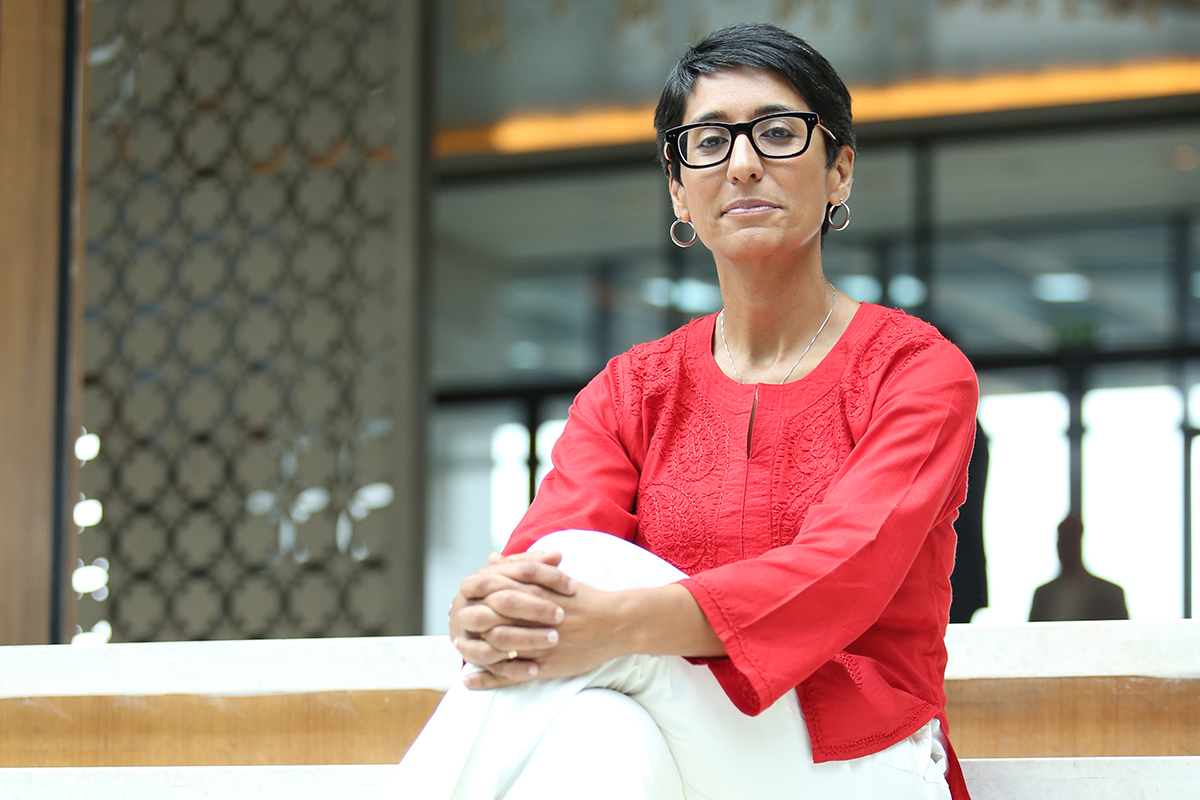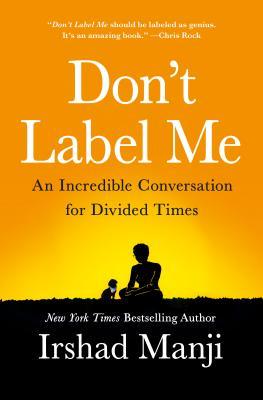Art and Culture
Want to Change the World? First, You Have to Listen to It
In rhyming this off, we’re “raising awareness” about the collective action that good citizens can take in the face of a repellant ideology.

he essay that follows is adapted from Irshad Manji’s newly published book, “Don’t Label Me: An Incredible Conversation for Divided Times.“
Liberals, among whom I count myself, are sometimes wise. So wise that we should take much of our own advice to others.
In the wake of 9/11, for example, many of my fellow liberals said that Americans must strive to understand why some Muslims gravitate to jihadism. Only by understanding, they stressed, can effective solutions be found. Bull, I remember thinking—or, rather, emoting. At the time, my emotions equated understanding with excusing.
I was wrong.
As a reformer within my faith of Islam, I’ve spoken with plenty of ex-jihadists. While I can’t claim this for every crusader on a homicide mission, the guys I met abandoned militant extremism only after they felt heard. Not coddled. Not swaddled. Just listened to by folks who excoriated their ideology yet accepted them as individuals with backstories.
What if we applied this insight to white supremacists and those who support them?
Let’s conduct a thought experiment. Richard Spencer, the slick frontman of the alt-right, comes to town for an event. Honorable people picket. We chant the tried and true, “Racist, sexist, antigay! Richard Spencer, go away!”
In rhyming this off, we’re “raising awareness” about the collective action that good citizens can take in the face of a repellant ideology. But we’ve also raised awareness about our own shrivelled imaginations. When we shout, “Richard Spencer, go away!” we’re shoring up a myth: that you can have free speech or you can have diversity, but you can’t have both.
I beg to differ. Suppose we adapt our mantra so it now goes, “Racist, sexist, antigay! Richard Spencer, have your say!” Picture it. The citizen-journalist in our midst asks us why we’d allow a thorough bigot to have his say. We reply it’s because diversity means diversity of viewpoint, too. It’s not just your skin color or gender identity or religion or sexuality or age or ability to live with a disability. Honest diversity includes the different ways in which people perceive a life worth having.
We’re then asked, but what about the vulnerable? Don’t you side with them? Damn straight, we reply. We’re not on the fence about Richard Spence’s ideology. It’s racist, sexist, and antigay, as we’ve been yelling to anyone who passes by. But to take away his right to be heard would be a huge disservice to diversity itself.
The citizen-journalist tries one more time. You oppose Richard Spencer then? Absolutely, we oppose his repellant views. We lock eyes with the camera lens. And we invite anybody who agrees with Spencer to tell us why. What’s making you consider his agenda to break up America for a separate, white-only safe space? We want to hear from you. Come on down and help us understand what we’re missing about you.
With this, liberals have practiced what we preach about diversity. We insist it’s about inclusion. This time, we’ve behaved like we believe it.
We’ve embodied integrity at another level, too: We’ve stood our ground even as we’ve summoned people to higher ground.
We’ve also challenged ourselves to see the Other—our Other—as bearers of gifts. Spencer’s sympathizers can make us savvier communicators. If nothing else, they’ll teach us how to reframe our arguments for more ears and hearts.

Finally, we’ve rewritten the script of political correctness, denying ammo to those who’d otherwise have a reason to accuse us of it. Sure, they’ll continue to label us as “politically correct,” but the more we model how liberty and diversity can be reconciled in reality, the better our chance of attracting voters who hanker for sanity. Voters whom a group of researchers recently described as “the exhausted majority.” Voters who can tip elections.
I get the larger fear here: that when dealing with neo-Nazis and their ilk, to launch anything less than a full-scale whooping is to normalize them. “Normalize” is the new N-word. My fellow liberals and I are aghast at the deteriorating public square under Trump, Spencer and gang. We recoil at the thought of conversing with their comrades. To do so is to recognize and therefore normalize them.
Is it, though? I’d suggest that in inviting conversation, we’re undermining their normalization by broadening “us.”
I experimented with this approach years ago as the host of QueerTelevision. As far as I know, it was the world’s first digitally streamed show about lesbian, gay, bisexual, and transgender people. My team had two investors: an American tech company and a Canadian TV station. To survive, our idealism had to deliver an expanding audience.
Even before we went to air, the team received nasty mail. Cultural conservatives tarred us as antifamily fanatics. Predictable. But what would happen, we wondered, if QueerTelevision broadcast their vitriol word-for-word? Better, what if I responded to it with a genuine smile on camera?
We tried it—and viewers couldn’t get enough. Soon, they, too, wrote and voiced their responses. We then aired those. Some viewers countered the hate with lacerating logic. Others outshone it with saucy humor. “People can say what they want about queers and homos and whatnot,” one guy phoned in, “but I’ve never, ever, ever been woken up on a Saturday morning with a group of homos knocking on my door, asking me to join their church.”
I still think about a concerned viewer’s question for me. “Why does your program allow such bigoted remarks?” he asked. “You’re making it that much harder for all the honest and beautiful people who are gay or lesbian to come out of the closet.” I replied that if we didn’t air the hate, we might never realize how much love is also out there.
Often, it takes ugliness to rouse beauty from its slumber.

Excerpted from Don’t Label Me: An Incredible Conversation for Divided Times by Irshad Manji. Copyright (C) 2019 by the author and reprinted by permission of St. Martin’s Press. Follow the author on Twitter at @IrshadManji.





